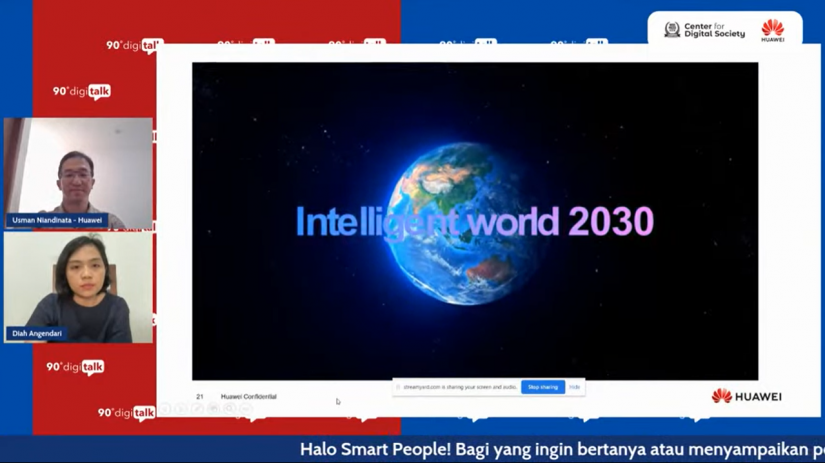
To explain AI in a simple way, Usman makes an analogy with AI as humans. Humans get data from various sensors, namely the five senses, in their bodies. Furthermore, the data will be sent to the brain to be studied. Today, there is a huge amount of digital data known as Big Data. The digital data is then processed and categorized by an “artificial brain” called machine learning and deep learning. Later, the categorization produces conclusions that can make the machine take a decision or action. “Artificial intelligence is a series, starting from obtaining, processing, collecting data, to drawing conclusions,” Usman explained.
“Almost all industries are currently starting to use AI, although the speed of acquisition is different,” Usman explained. The three industries that are rapidly leveraging AI are over-the-top (OTT) media services, communications, and media. According to Usman, in the future, almost all industries will use AI. The current pandemic is also increasingly encouraging people to work digitally. Therefore, Usman suggested that students and students prepare to go to the intelligent world. There are many digital platforms to learn new knowledge, for example about the use of Big Data, data analysis, digital marketing, and so on. At FISIPOL UGM, students can also take Digital Intelligence courses.
“Based on the research we have done, in 2025, the acquisition of intelligent world technology will be very fast,” Usman said. Huawei’s research predicts that by 2025, 58 percent of the world’s population will use 5G networks. Then, ten percent of the world’s population is estimated to have used virtual reality. Not only from the user side, as many as 85 percent of applications will run in the cloud (virtual storage), no longer installed on hardware. From the enterprise side, it is estimated that 86 percent of companies have used Big Data in their daily work, while 97 percent of large enterprises are estimated to have adopted AI in their work applications.
